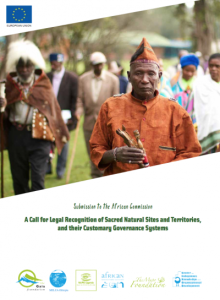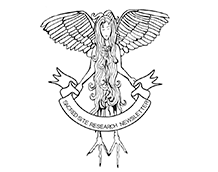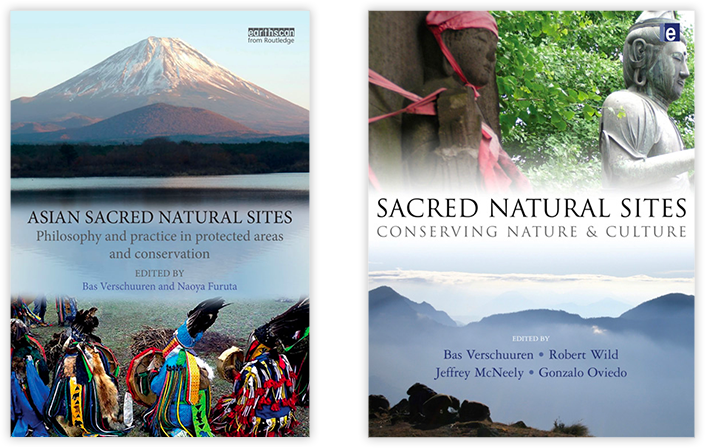
“Panggilan untuk Pengakuan Hukum atas Situs dan Wilayah Alam Suci, dan sistem tata kelola adat mereka ” dirilis oleh Gaia Foundation dan African Biodiversity Network. Laporan ini memberikan Komisi Afrika untuk Manusia dan Masyarakat’ Hak dengan argumen persuasif dan substantif yang berkaitan dengan elemen inti dari tradisi Afrika asli dan menyerukan kebijakan yang menentukan dan respons legislatif tentang masalah tersebut. Baca laporan lengkapnya Atau kunjungi situs web Yayasan Gaia.
Laporan ini didasarkan pada pernyataan, oleh komunitas penjaga dari enam negara Afrika dan memberikan badan dukungan hukum dan kebijakan untuk penjaga’ penyataan, Ditarik dari Piagam Afrika maupun dari Hukum Internasional dan Domestik.
situs alam suci adalah sumber kehidupan. situs alam suci yang mana kita berasal, jantung kehidupan. Mereka adalah akar kita dan inspirasi kami. Kita tidak bisa hidup tanpa sakral kita situs alami dan kami bertanggung jawab untuk melindunginya. Sumber: Kustodian’ Pernyataan.
Ini mengingatkan kita bahwa Piagam Afrika melakukan negara -negara anggota untuk menghormati dan memelihara sistem hukum jamak, dan merekomendasikan bahwa negara -negara Afrika harus mengakui sistem hukum apriori sebagai bagian dari komitmen mereka terhadap identitas Afrika yang bangga, Untuk lebih menavigasi jalur pengembangan di mana integritas dan warisan benua dipertahankan.
Poin -poin penting dari laporan ini:
 Situs alami suci memainkan peran penting dalam melindungi keanekaragaman hayati, penting untuk membangun ketahanan perubahan iklim.
Situs alami suci memainkan peran penting dalam melindungi keanekaragaman hayati, penting untuk membangun ketahanan perubahan iklim.- Komunitas penjaga, situs alami suci yang memelihara sistem tata kelola adat memainkan peran penting dalam menjaga nilai -nilai tradisional Afrika.
- Situs alami suci adalah landasan sistem tata kelola adat membutuhkan perlindungan hukum.
- Sistem hukum jamak termasuk sistem tata kelola adat dan membentuk komponen penting untuk menghormati esensi Afrika,
- Situs dan wilayah alami yang sakral harus diakui sebagai daerah yang tidak perlu ditambang dan kegiatan destruktif atau ekstraktif lainnya.
Laporan ini juga menyerukan pengakuan dan perlindungan situs alami suci dari segala bentuk penghancuran – termasuk penambangan dan perampasan tanah – Sebagai prasyarat untuk mewujudkan orang Afrika’ Hak yang tidak dapat dicabut yang diabadikan dalam Piagam Afrika, termasuk hak untuk memegang dan mempraktikkan moral tradisional, nilai dan budaya. Diskusi tentang preseden global, Sistem Hukum Jamak dan Studi Kasus Afrika dari Benin, Ethiopia dan Kenya juga termasuk.
Sumber: diadaptasi dari Yayasan Gaia.






